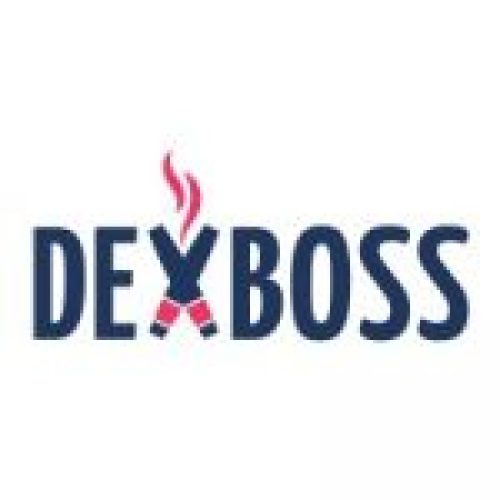The metaverse, a convergence of virtual and physical worlds, is rapidly evolving from a science fiction concept to a tangible reality. As this immersive digital realm continues to gain traction, the demand for skilled professionals who can navigate and shape its development is skyrocketing. In this cutting-edge landscape, a Certified Metaverse Professional is poised to unlock unprecedented opportunities, driving innovation and redefining the boundaries of human-computer interaction.
In this comprehensive guide, we’ll explore the world of Metaverse Certification, delving into the professional certification in Metaverse that can propel your career to new heights. We’ll cover everything from the essential Metaverse skills certification and Metaverse education programs to the Metaverse certification exam and Metaverse professional development opportunities. Whether you’re a tech enthusiast, a developer, a marketer, or an entrepreneur, this guide will equip you with the knowledge and resources you need to thrive in the rapidly evolving metaverse.
- Understanding the Metaverse Landscape
Before embarking on your journey to become a Certified Metaverse Professional, it’s crucial to grasp the fundamental concepts and technologies that underpin this emerging domain. Key areas to familiarize yourself with include:
- Virtual and Augmented Reality (VR/AR): The metaverse is built upon the foundations of VR and AR technologies, enabling immersive experiences and seamless integration of digital and physical worlds.
- Blockchain and Cryptocurrencies: Decentralized technologies like blockchain and cryptocurrencies play a vital role in facilitating secure transactions, digital ownership, and governance within the metaverse.
- Internet of Things (IoT) and Edge Computing: The metaverse relies on IoT devices and edge computing to bridge the gap between virtual and physical environments, enabling real-time data exchange and interactive experiences.
- Artificial Intelligence (AI) and Machine Learning (ML): AI and ML are essential for powering intelligent virtual assistants, creating realistic simulations, and enabling personalized metaverse experiences.
- Exploring Metaverse Certification Paths
As the metaverse ecosystem continues to evolve, a diverse array of Metaverse Certification programs and Metaverse education programs have emerged to cater to different professional needs and skill levels. Here are some popular certification paths to consider:
- Vendor-Specific Certifications: Major technology companies like Meta, Microsoft, NVIDIA, and Unity offer specialized certifications focused on their respective metaverse platforms and tools.
- Industry-Recognized Certifications: Organizations like the Metaverse Standards Forum, Metaverse Institute, and Metaverse MBA offer vendor-neutral, industry-recognized Metaverse Certification programs.
- Academic Certifications: Leading universities and educational institutions are introducing Metaverse education programs, such as online courses, degrees, and specialized certificates, to equip students with metaverse-specific knowledge and skills.
- Essential Metaverse Skills and Competencies
To become a Certified Metaverse Professional, you’ll need to develop a diverse set of skills and competencies spanning various domains. Some of the key areas to focus on include:
- 3D Modeling and Design: Proficiency in 3D modeling tools like Blender, Maya, or Cinema 4D is essential for creating immersive virtual environments and assets within the metaverse.
- Game Engine Development: Knowledge of game engines like Unity or Unreal Engine is crucial for building interactive metaverse experiences, simulations, and applications.
- Web3 and Blockchain Development: Familiarity with Web3 technologies, smart contracts, and blockchain development frameworks like Ethereum, Solana, or Cosmos is vital for enabling decentralized metaverse ecosystems.
- Extended Reality (XR) Development: Expertise in XR development, including virtual reality (VR), augmented reality (AR), and mixed reality (MR), is essential for creating seamless and immersive metaverse experiences.
- User Experience (UX) and Interaction Design: As the metaverse aims to provide intuitive and engaging experiences, strong UX and interaction design skills are paramount for creating user-centric metaverse solutions.
- Data Analytics and Visualization: The metaverse generates vast amounts of data, making data analytics and visualization skills crucial for understanding user behavior, optimizing experiences, and making data-driven decisions.
- Preparing for the Metaverse Certification Exam
Once you’ve acquired the necessary knowledge and skills, the next step is to prepare for the Metaverse Certification Exam. Different certification providers may have varying exam formats and requirements, but here are some general tips to help you prepare:
- Study Official Curriculum and Resources: Thoroughly review the official curriculum, study guides, and recommended resources provided by the certification body to ensure you cover all the essential topics.
- Practice with Sample Questions and Mock Exams: Many certification providers offer sample questions, practice tests, and mock exams to help you gauge your readiness and identify areas that need further attention.
- Join Online Communities and Forums: Engage with online communities, forums, and study groups dedicated to metaverse certification to learn from experienced professionals, ask questions, and share insights.
- Attend Preparatory Training or Workshops: Consider enrolling in preparatory training courses or workshops offered by accredited institutions or certification providers to receive structured guidance and hands-on practice.
- Maintaining and Advancing Your Metaverse Certification
In the rapidly evolving world of the metaverse, continuous learning and professional development are essential to staying relevant and competitive. Here are some strategies to maintain and advance your Metaverse Certification:
- Renew Your Certification: Most metaverse certifications require periodic renewal to ensure your knowledge and skills remain up-to-date with the latest developments and best practices.
- Pursue Advanced or Specialized Certifications: As you gain experience in the metaverse domain, consider pursuing advanced Metaverse certifications or specialized certifications in areas like metaverse security, metaverse marketing, or metaverse enterprise solutions.
- Attend Industry Events and Conferences: Participate in metaverse-related conferences, seminars, and networking events to stay informed about the latest trends, technologies, and opportunities in the field.
- Contribute to Open-Source Projects: Get involved in open-source metaverse projects to gain hands-on experience, collaborate with other professionals, and showcase your skills to potential employers or clients.
- Join Professional Organizations: Consider joining professional organizations like the Metaverse Standards Forum, Metaverse Institute, or Metaverse MBA to access exclusive resources, networking opportunities, and continuous professional development programs.
- Stay Updated with Industry News and Trends: Subscribe to industry publications, blogs, and podcasts focused on the metaverse to stay informed about the latest developments, emerging technologies, and best practices.
- Career Opportunities for Certified Metaverse Professionals
- As the metaverse continues to gain traction across various industries, the demand for Certified Metaverse Professionals is poised to skyrocket. Here are some exciting career paths and opportunities to explore:
- Metaverse Solution Architect: Design and implement end-to-end metaverse solutions, integrating various technologies and platforms to create immersive and engaging experiences.
- Metaverse Developer: Build and develop metaverse applications, virtual worlds, and interactive experiences using game engines, 3D modeling tools, and XR development frameworks.
- Metaverse UX/UI Designer: Craft intuitive and user-centric interfaces, interactions, and experiences within the metaverse, ensuring seamless navigation and engagement.
- Metaverse Project Manager: Lead and coordinate cross-functional teams, manage metaverse project lifecycles, and ensure successful delivery of metaverse solutions.
- Metaverse Consultant: Provide strategic guidance and advisory services to organizations seeking to establish a presence in the metaverse, leveraging your expertise in metaverse technologies and best practices.
- Metaverse Educator or Trainer: Develop and deliver Metaverse education programs, courses, and training workshops to upskill professionals and prepare the next generation of metaverse experts.
- Metaverse Entrepreneur: Identify and capitalize on emerging opportunities within the metaverse ecosystem, launching innovative products, services, or startups that shape the future of this virtual frontier.
- The metaverse is a rapidly evolving and multidisciplinary domain, offering diverse career paths for individuals with varying backgrounds and skill sets, from developers and designers to strategists and educators.
- As the demand for Metaverse Certification continues to rise, obtaining a professional certification in Metaverse can provide a significant competitive advantage, validating your expertise and demonstrating your commitment to this cutting-edge field. By following the steps outlined in this guide, you’ll be well-equipped to navigate the metaverse landscape, unlock new opportunities, and position yourself as a trailblazer in this exciting digital frontier.



